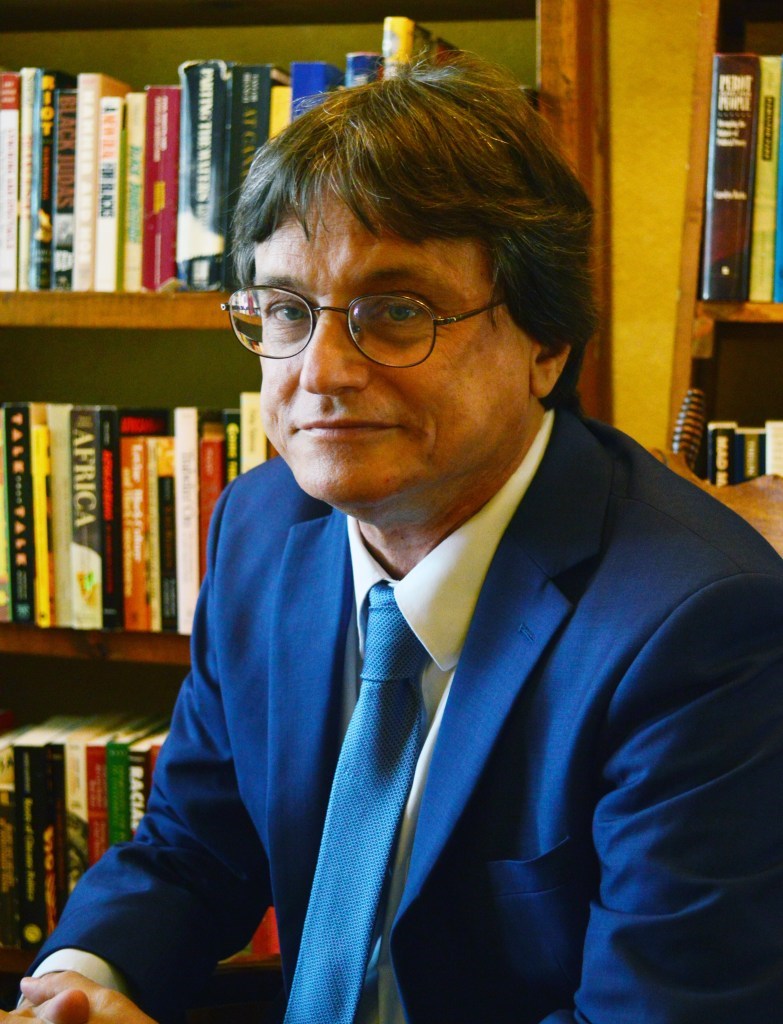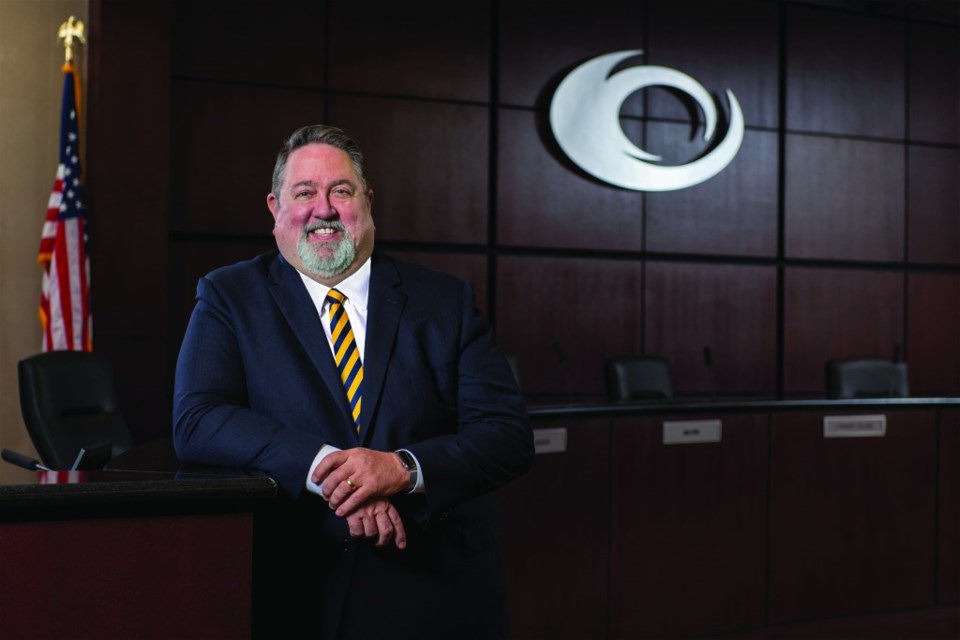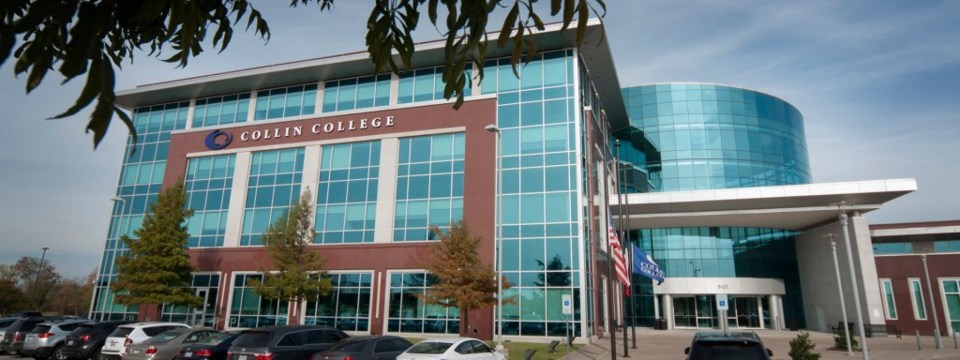2020 and 2021 have been rough years for Collin College, which continues to endure controversies about everything from free speech to racism to its pandemic response, earning national media attention from commercial and academic presses. The bad publicity butts up against a growing community, and a college that's growing with it. How will the school move forward? Read on and find out.
“A shattering experience.”
Dr. Lora Burnett didn’t know it at the time, but she was about to be in the middle of a culture war. It was the 1980s, and amid the picture-perfect trappings of elite Stanford University, Burnett felt like an outsider.
“I came from a background where all of my family members started at community colleges,” she says, “and my classmates [at Stanford] were children of diplomats and Supreme Court judges and who knows what else. It was an interesting time, and I didn’t know until later just how interesting it was.”
While studying at Stanford, Burnett, a future professor and historian of ideas, watched the campus become embroiled in a headline-grabbing debate over the college’s Western Civilization curriculum. At first glance, the argument seemed simple enough: One side wanted a more diverse reading list while the other wanted the course to stay the same. But Burnett, who later wrote a book about the debates, knows the real fight was far more nuanced. It was a fight about America, she says, about who belongs at the table, and about the very purpose of higher education.
After graduating from Stanford, Burnett earned a PhD in the History of Ideas. Her resume was impressive, but Burnett didn’t want to teach at an Ivy League, Potted Ivy League or any other school associated with that “elite” tag – she wanted to teach at a community college.
“Community college is the linchpin of higher education,” she told Local Profile. “It was my dream job.”
And for a while, she lived that dream. Until May, Burnett taught history at Collin College. In her words, she enjoyed helping “provide a gateway” for students to achieve their higher education goals.
But on Feb. 25, Burnett became one of four professors to lose their jobs in what students, other professors and freedom of speech advocates believe was a transparent attempt to silence dissent at Collin County’s community college.
What’s more, all of the people who lost their jobs were women.

To these critics, Burnett (whose primary offense seems to be tweeting a jab about Mike Pence’s “demon mouth” during last year's vice presidential) and the other three instructors had their First Amendment rights blatantly violated. To Collin College, this was business as usual: Some professors don’t get their contracts renewed, leaders have said publicly; it happens every year.
The fact that this debate occurred in the wake of a hostile presidential race and a politicized pandemic further muddied the waters. Here was another culture war, and this time, Burnett was in the middle of it. Now, in addition to fending off caustic criticism on Twitter and trying to figure out what her own future looks like, the professor is now grieving the loss of a dream job.
“It was shattering,” she says of the job loss. “A shattering experience.” And like the debates at Stanford, it was part of a much larger story.
The larger story at Collin College
From a publicity perspective, 2020 and 2021 have been rough years for Collin College. The college continues to endure controversies about everything from free speech to racism to its pandemic response, earning national media attention from commercial and academic presses for all the wrong reasons. This bad publicity butts up against a community that is growing and a college that is growing along with it.
According to data provided by Marisela Cadena-Smith, the college’s director of marketing and communications, Collin College enjoyed year-over-year growth in the hundreds during a global pandemic. As of spring 2021, more than 32,000 students were enrolled at Collin College. That number typically increases by a few thousand during the spring and summer, which are the college’s most popular terms.
“Community colleges have this wonderful dynamic where they can constantly bend, twist, mutate and adjust to the demands of the market,” says Bryan Alexander, a futurist, scholar and author of the 2020 book Academia Next: The Futures of Higher Education. “And while many colleges, including community colleges, have either plateaued or are experiencing a decrease in enrollment, Texas is an outlier. Texas has a growing number of students because [the state] is still making students and you have rising numbers of internal and external migration.”
In other words, Collin College is well-positioned to emerge from the pandemic as an even larger institution. However, students and professors want more. Chris Vasquez, a former student currently attending the University of Texas at Austin, wants the college to speak out against racism and extremism in Collin County.
“I was extremely disappointed with how [Collin College] didn’t have much of a strong response to the El Paso shooting, despite the fact that the perpetrator was a former student at Collin College and a resident of our community,” Vasquez says. “There also needs to be more access to mental health care for students.”
Sonia Huerta, a student who spent three years at Collin College, wants new leadership, including more diversity on the school’s Board of Trustees. Dr. Michael Phillips, one of the college’s professors as well as one of its fiercest critics, wants more accountability in leadership.
“Collin College has never been perfect,” Phillips says, “but I felt safer under previous boards and with previous administrations. We’ve certainly never had a professor purge like we did this year, and I can’t think of a crueler time to do this. We’re all adjunct professors, which means we don’t get paid very much already. Now we’re dealing with this pandemic, with job loss on a mass scale, and with the death of one of our colleagues.”

Phillips is referring to the November death of Iris Meda, a 70-year-old nursing teacher at Collin College who died in November 2020 after contracting the coronavirus. After learning of their fellow teacher’s death, many professors expressed renewed outrage at the college’s decision to host in-person classes that fall. They were also upset by the way Neil Matkin, the college’s president, broke the news.
Matkin mentioned a professor’s death in late November, but he didn’t name Meda, and the mention came nearly two dozen paragraphs into his email. The subject line was “College Update & Happy Thanksgiving!”
It wasn’t the first time the president was in hot water over an email.
“The effects of this pandemic have been blown utterly out of proportion,” he wrote in an email to all members of the college’s staff on Aug. 15, 2020. In that same email, he stated that the number of COVID-19 deaths was “clearly inflated,” even though North Texas had just experienced a devastating summertime surge of hospitalizations and deaths.
To several professors interviewed for this story, Matkin’s email — and the college’s decision to host in-person classes — was callous and reckless. It was also altogether unsurprising given the other outrageous moves Matkin has made during his tenure as college president.
“Matkin has repeatedly misrepresented reality,” Phillips says. This is a particular area of concern for Phillips, a historian who wrote the 2006 book White Metropolis: Race, Ethnicity, and Religion in Dallas, 1841–2001. In his view, there’s a reason Collin College is refusing to renew the contracts of women like Burnett and professors Audra Heaslip and Suzanne Jones: Each represents a threat to the way things have always been in Collin County.

“There is a clear willingness to shut out women and anyone else who is not conservative or won’t keep quiet,” Phillips says. “I definitely think misogyny is a part of it, but it’s politics, too.
Collin College did not respond to a request for interviews with Matkin and other administrators, but the president did sit down with D Magazine in spring 2021. In a wide-ranging conversation, Matkin said he is an independent whose actions are not swayed by any politician or political party. Yet text messages revealed he regularly communicated with Republican Congressman Jeff Leach about Burnett’s Mike Pence tweet, claiming the professor was already “on [his] radar before the current issue.”
In that same interview, Matkin expressed some regret over the Aug. 15 email in which he downplayed the seriousness of COVID-19.
“There were things that I did say early on that — would I say them today knowing where this thing was headed and what was going on? No,” he told D.
But the college’s coronavirus response was far from the only fault line along which professors and administrators have recently feuded. In 2017, Phillips and Professor Jones signed their names on a public letter urging the removal of Confederate monuments in Dallas. Phillips says he was told by Matkin that his signing of the letter could “make the college look bad.”
Worse yet, when they declined to renew Jones’ contract, the college listed her signature on that letter as one of the reasons for her dismissal. The other reasons? Jones criticized the school’s COVID-19 plan, and the website for the Texas Faculty Association (TFA), a non-collective bargaining union, included her name in a list of members.
Maia Mott, a former student who is now pursuing a graduate degree at Colorado State University, was appalled when she learned that the college had ostensibly punished a professor for calling for the removal of Confederate monuments.
“It was a real mask-off moment,” she says. “Like, ‘This is who we really are. Deal with it.’”
Burnett has spent much of 2021 in physical pain. Losing her dream job took a toll on her mental health, she explains, but it took an even greater toll on her physical health.
“Even if you don’t deserve what happened to you, you still feel it,” she says.
From the college’s perspective, Burnett failed to conduct herself in a professional manner; they said as much in the February letter announcing their decision not to renew her contract. But Burnett argues that whatever she tweets on her own time is her own business.
“If I was the official spokesman for Collin College, or I’m tweeting from the Collin College Twitter account, then of course I should be disciplined,” she says. “But when I'm relaxing on my own time watching a vice presidential debate, the government can’t tell me what to do.”
Even still, Burnett doesn’t think it was just the tweet that got her dismissed.
“It was the fact that I stood up for my First Amendment rights,” she says, citing her public criticism of the college’s coronavirus plan (at one point during the pandemic, Collin College was the only public college in the state still demanding that everyone attend classes in-person despite refusing to reveal whether there were any COVID-19 cases on any of its five campuses).
Burnett also cites the way she has stood up for professors like Jones. “I think that’s what sticks in their craw: that even when they told me I was ‘on their radar,’ I refused to fade into the background.”
And she still won’t. While Burnett didn’t share details about her grievance against Collin College, she implied that she is still working toward restitution. Likewise, Jones (whose lawyer advised her not to comment for this story) was in the middle of a mediation with the college when she was approached by Local Profile.
So what's next for Collin College?

Meanwhile, Collin College officials say they are thinking about what’s best for the students. They’ve added new programs like welding and cybersecurity, and they plan to expand their dual credit offerings with local ISDs.
“The college is also excited to be expanding services to the northeast and northwest portions of Collin County by opening campuses in the Farmersville and Celina communities,” Cadena-Smith wrote in an email. “The college continues to experience enrollment growth year over year, and we expect this trend to continue.”

![Top 5 Reads Of The Week [June 23-27]](https://www.vmcdn.ca/f/files/localprofile/images/events/downtown-celina-city-of-celina.jpg;w=120;h=80;mode=crop)

